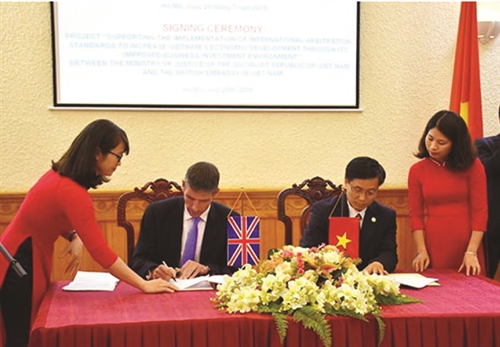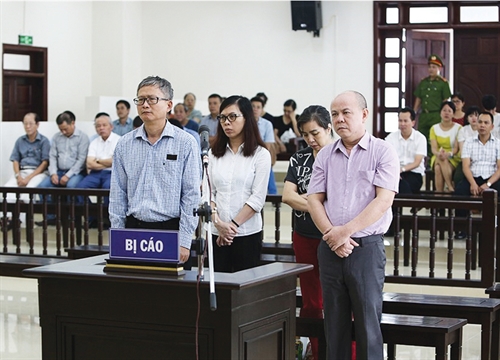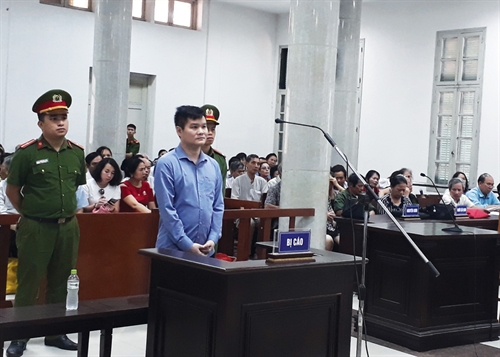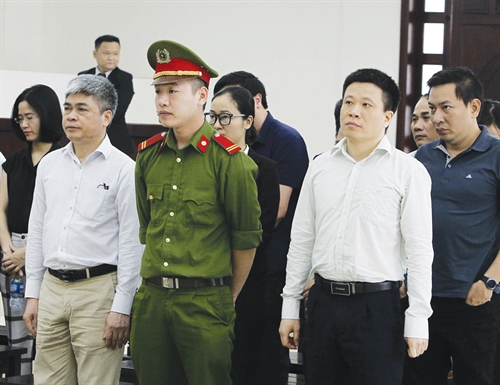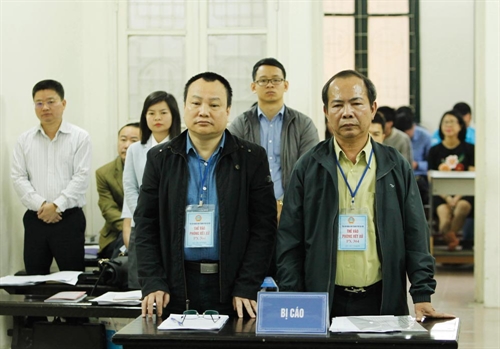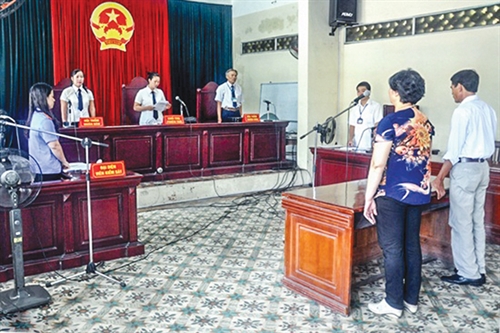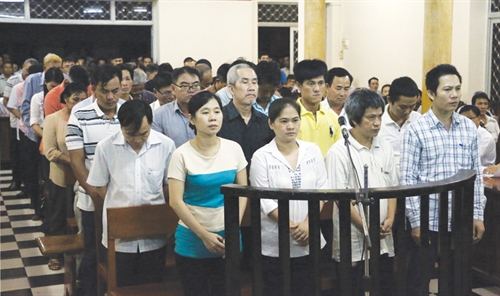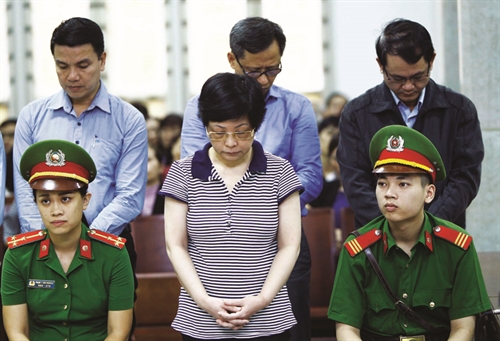The article analyzes the provisions of the 2015 Civil Procedure Code on the procedures for accepting and processing dossiers of request for recognition and enforcement of foreign arbitral awards in Vietnam.
Tuong Duy Luong
Lawyer, arbitrator of Vietnam International Arbitration Center
Dossiers of request and filing time limit
Any legally effective foreign arbitral award may only be enforced in Vietnam after it is recognized and permitted for enforcement by a Vietnamese court. Once recognized, such foreign arbitral award will be enforced with state power unless the debtor voluntarily executes it. That’s why the claimant should exercise the right to request recognition and enforcement of the award within the law-prescribed time limit so that the Vietnamese competent agency can proceed with the recognition and enforcement procedures. Past the said time limit, the claimant’s request will not be accepted by the court, especially when an involved party requests the court to apply the regulations on limitation periods.
Article 451 of the 2015 Civil Procedure Code (the Code) stipulates:
“1. Within three years from the date a foreign arbitral award takes legal effect, the claimant or a person with related lawful rights or obligations or his/her/its lawful representative may file a written request with the Vietnamese Ministry of Justice in accordance with a treaty to which the Socialist Republic of Vietnam is a contracting party or, in case the treaty to which the Socialist Republic of Vietnam is a contracting party does not so prescribe or there is no relevant treaty, with a competent Vietnamese court prescribed by this Code to request the latter to recognize and enforce such foreign arbitral award in Vietnam.
2. In case a requesting person can prove that due to a force majeure event or an objective obstacle he cannot file his written request within the time limit prescribed in Clause 1 of this Article, the period during which the force majeure event or objective obstacle occurs shall not be counted in the time limit for filing the written request.”
As compared to the 2004 Civil Procedure Code, there is a new specific provision in the above article prescribing the time limit for filing a written request, i.e., three years from the foreign arbitral award takes legal effect, except where the requesting claimant can prove the late filing is attributable to a force majeure event or an objective obstacle.
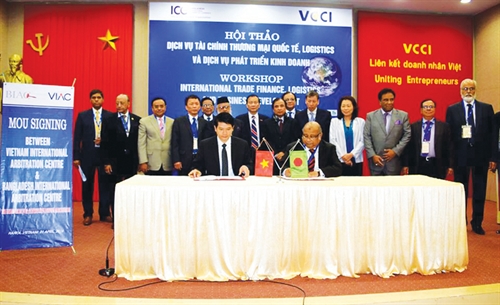 |
| The signing ceremony of a cooperation agreement between the Vietnam International Arbitration Center and the Bangladesh International Arbitration Center__Photo: Internet |
Documents to be provided
A dossier of request must include a written request which must have the following principal details:
• Full name and address of the place of residence or workplace of the claimant or his/her/its lawful representative in Vietnam; or name and address of the head office, if the claimant is an agency or organization;
• Full name and address of the place of residence or workplace of the debtor; or name and address of the head office, if the debtor is an agency or organization.
If an award debtor has no place of residence or workplace in Vietnam or no head office in Vietnam, the written request must specify the address of the place where the property related to the enforcement of the foreign arbitral award in Vietnam is located;
• The claimant’s claims.
A written request in a foreign language must be enclosed with its lawfully notarized or certified Vietnamese translation.
Documents accompanying a written request
• Accompanied by a written request must be documents as prescribed in a treaty to which the Socialist Republic of Vietnam is a contracting party;
• In case such a treaty is not available or has no relevant provisions, a written request must be accompanied by the original or certified copy of the foreign arbitral award, or the original or certified copy of the arbitral agreement among the parties;
• If documents accompanying a written request are in a foreign language, their lawfully notarized or certified Vietnamese translations are required.
In practice, a claimant being a foreign organization or business may authorize a Vietnamese individual or organization to file a written request and participate in the proceedings for foreign arbitral award recognition and enforcement. In this case, the claimant is also required to submit the letter of authorization.
The court may not ask the claimant to provide any other documents than the above documents and a fee receipt as required when accepting the dossier of request. Yet, in reality, some Vietnamese courts have requested claimants to additionally provide documents proving the legal validity of foreign arbitral awards in case debtors challenge such awards.
It is necessary for the court to distinguish written requests referred to in Article 452 from petitions for settlement of civil matters prescribed in Article 362 or civil lawsuits prescribed in Article 189 of the Code so as to refrain from requesting claimants to do things not required by law.
Agencies receiving dossiers of request
Under Articles 451 and 454 of the Code, the Vietnamese Ministry of Justice (MOJ) and courts have the competence to receive written requests for recognition and enforcement of foreign arbitral awards in Vietnam.
A written request and accompanying documents may be filed with the MOJ where it is so provided by a treaty to which Vietnam is a contracting party. Within five working days after receiving them, the MOJ has to forward them to a competent court for processing.
In case the treaty to which Vietnam is a contracting party does not provide that the MOJ is obliged to receive requests or there is no relevant treaty, a claimant may file his/her/its written request and accompanying documents directly with a competent Vietnamese court.
As per the above provisions, claimants from countries having no mutual legal assistance agreements on civil matters with Vietnam or from member states of treaties which do not require dossiers of request for recognition and enforcement of foreign arbitral awards to be filed with the MOJ, may file their dossiers directly with a competent Vietnamese court.
This is why a Vietnamese court, upon receiving the above written request, should check whether or not Vietnam and the home country of the claimant have a legal assistance agreement or whether such an agreement requires a Vietnamese court or another agency to receive written requests. In case of absence of a mutual legal assistance agreement or where such an agreement does not specify a Vietnamese agency in charge of receiving written requests, a competent Vietnamese court will have to receive and process dossiers of request.
Identification of competent courts
Requests for recognition and enforcement of foreign arbitral awards in Vietnam are specified in Article 31.5 of the Code as those concerning business or commercial matters falling under the jurisdiction of Vietnamese courts. These are foreign-involved matters which often require a time-consuming process of collecting documents and evidences or the application of foreign laws in the acceptance and processing of dossiers of request. Articles 37.1.b and 38.3.a of the Code say that competent courts are economic tribunals of provincial-level people’s courts.
Article 39.2.e of the Code provides the territorial jurisdiction of courts as follows:
• The economic tribunal of the provincial-level court of the locality where the foreign arbitral award debtor being an individual resides or works;
• The economic tribunal of the provincial-level court of the locality where the foreign arbitral award debtor being an agency or organization is headquartered;
• The economic tribunal of the provincial-level court of the locality where the property related to the enforcement of the foreign arbitral award is located, in case the foreign arbitral award debtor does not fall into the above two cases.
Under Article 39.3 of the Code, once a written request has been accepted by a court and is currently settled in accordance with this Code’s provisions on the territorial jurisdiction of courts, it will be further settled by such court even though the place of residence, head office or place of transaction of an involved party is changed.
Acceptance of dossiers of request
Under Article 455 of the Code, within five working days after receiving a dossier of request transferred from the MOJ or a written request and accompanying documents directly from a claimant, a competent court has to consider and accept the dossier and notify such in writing to the claimant and debtor or their lawful representatives in Vietnam, the same-level procuracy and MOJ.
Procedures for receiving and processing written requests
Upon directly receiving a written request, the competent court has to issue a request receipt to the claimant. For a written request sent by post, it has to send a notice of request receipt to the claimant within two working days. For a written request filed online, it has to immediately notify such to the claimant via its portal.
Within three working days after receiving a written request, the chief justice of the competent court has to assign a judge to examine it. Within five working days after being assigned, the judge will have to examine the request and decide to:
(i) demand the modification or supplementation of the request;
(ii) complete the procedures for accepting the request;
(iii) forward the request to another competent court and notify such to the claimant, if such request falls beyond the jurisdiction of his/her court; or,
(iv) return the request to the claimant if it falls beyond the jurisdiction of Vietnamese courts.
The processing results must be recorded in the request receipt book and notified to claimants online via the court’s portal.
For any written request that lacks details specified in Article 452 of the Code, the examining judge has to notify in writing the claimant of contents which need to be modified or supplemented within seven working days after receiving the request. The period of modification or supplementation is not counted into the filing time limit. If the claimant fails to modify or supplement the written request within the said time limit, the judge will return it and accompanying documents to the claimant.
Return of written requests
A written request will be returned to the claimant if:
• The claimant has no right to request or no full civil procedure act capacity;
• The matter has been settled by a competent agency;
• The arbitral matter falls beyond the jurisdiction of Vietnamese courts;
• The claimant fails to modify or supplement the written request within the prescribed time limit;
• The claimant fails to pay a fee within the time limit prescribed by the Code, except where he/she/it is exempt from such fee or delays the payment due to a force majeure event or an objective obstacle; or,
• The claimant withdraws the request.
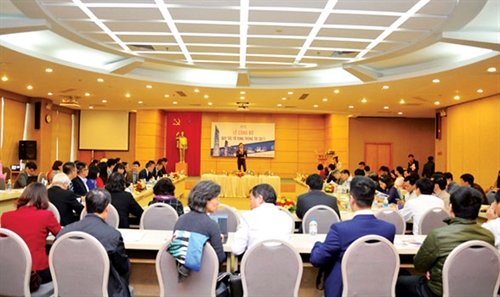 |
| A ceremony held by the Vietnam International Arbitration Center to release the Rules of Arbitration - 2017 Edition__Photo: Internet |
Complaints about return of written requests
Within 10 days after receiving a notice of return of his/her/its written request, a claimant may file a complaint or a procuracy may file a petition with the court that has returned such request. Upon receiving a complaint or petition about the return of a written request, the chief justice of the court has to assign another judge to hold a meeting with the representative of the same-level procuracy and complainant to consider and settle the complaint or petition within five working days.
Based on documents and evidence related to the return of the written request and opinions of the said representative and complainant, the judge may decide to uphold the return decision or accept again the written request and accompanying documents for processing.
If disagreeing with the judge’s decision, the complainant or procuracy may file his/her/its complaint or petition with the immediately superior chief justice. Within 10 days after receiving such complaint or petition, the chief justice may decide to uphold the return decision or request the first-instance court to accept back the written request and accompanying documents for processing.
If there is a ground to believe that the complaint or petition settlement decision of the superior chief justice is illegal, the complainant or procuracy may further file his/her/its complaint or petition with the Chief Justice of the Supreme People’s Court if the complained or petitioned decision is issued by a superior court’s chief justice.
Within 10 days, the Chief Justice of the Supreme People’s Court has to make a decision which is final.
Acceptance of written requests
If finding a written request and accompanying documents valid, the judge has to notify the claimant to pay a fee for arbitral award recognition and enforcement within five working days and accept the written request when the claimant produces the fee receipt. If the claimant is exempt from the fee, the judge has to accept the arbitral matter upon receiving the written request.
Within three working days after accepting a written request for arbitral award recognition and enforcement in Vietnam, a court has to notify in writing the acceptance to the claimant, debtor and same-level procuracy, stating the time limit for the debtor to send his/her/its written opinions in the written request and accompanying documents, as well as legal consequences resulting from the debtor’s failure to send such opinions.
Transfer of dossiers of request
If finding that a written request for arbitral award recognition and enforcement in Vietnam that it has accepted falls under the jurisdiction of another court, the court has to issue a decision to transfer the dossier of request to the competent court and promptly send such decision to the same-level procuracy, claimant and the MOJ (in case the written request is transferred from the MOJ).
Involved parties and the procuracy may file a complaint or petition about such decision within three working days after receiving it. Within three working days after receiving the complaint or petition, the chief justice of the dossier- transferring court has to settle it and his/her settlement decision is final.
Disputes over jurisdiction between provincial-level people’s courts falling under the territory-based competence of superior courts will be heard by chief justices of superior courts. Disputes over jurisdiction between provincial-level people’s courts falling under the territory-based competence of different superior courts will be resolved by the Chief Justice of the Supreme People’s Court.-
------------------------------------------------------------------------------------------------------------------------------------------------------------
COURT NEWS
With effect from August 1, Joint Circular 07 dated June 12, of the Ministry of Justice, Supreme People’s Court and Supreme People’s Procuracy prescribes the coordinated implementation of a number of procedures for execution of court rulings on bankruptcy settlement.
Within five working days after being notified of the court’s acceptance of petitions for initiation of the bankruptcy procedures, heads of civil judgment enforcement agencies must decide to suspend the enforcement of assets-related civil judgments against insolvent enterprises or cooperatives, except judgments or rulings forcing these enterprises or cooperatives to pay compensations for damage to life, health or honor of employees or pay salaries to them.
In case the court has made a ruling on initiation of the bankruptcy procedures and the civil judgment enforcement agency has issued a judgment enforcement termination decision under Article 71.2 of the Law on Bankruptcy, but then the court rules on termination of the bankruptcy procedures under Article 86 of the Law on Bankruptcy and on termination of the procedures for business restoration under Article 95.1.a of the Law on Bankruptcy, the civil judgment enforcement agency has to issue, within five working days after receiving the court rulings, decisions to revoke its judgment enforcement termination decision and to resume the judgment enforcement under Article 137.3 of the Law on Enforcement of Civil Judgments.
A court ruling on bankruptcy settlement will be transferred to the competent civil judgment enforcement agency within 30 days after it takes effect. Within three working days after receiving such a court ruling on bankruptcy settlement, the head of the competent civil judgment enforcement agency may issue a decision on judgment enforcement and assign an enforcer to enforce it.
The valuation and revaluation of assets in case an enforcer applies coercive measures to recover loans for the insolvent enterprise or cooperative must comply with Articles 73.2, 98 and 99 of the Law on Enforcement of Civil Judgments, and Articles 17, 25 and 26 of Government Decree 62 of 2015. In case asset management officers and asset management and liquidation firms conduct the liquidation of remaining assets of the insolvent enterprise or cooperative, the asset valuation and re-valuation must comply with Articles 122 and 123 of the Law on Bankruptcy.
The sale of assets in case an enforcer applies coercive measures to recover loans for the insolvent enterprise or cooperative must comply with Article 101 of the Law on Enforcement of Civil Judgments and Article 27 of Decree 62 of 2015. The sale of assets in case asset management officers and asset management and liquidation firms conduct the liquidation of remaining assets of the insolvent enterprise or cooperative must comply with Article 124 of the Law on Bankruptcy.
Regarding the asset division after the liquidated assets are put for auction, an enforcer has to follow the asset division plan under the decision declaring the enterprise or cooperative bankrupt under Article 120.2.d of the Law on Bankruptcy. In case the asset value is insufficient for debt payment, creditors of the same priority rank will receive payments in proportion to debts owed to them.- (VLLF)
